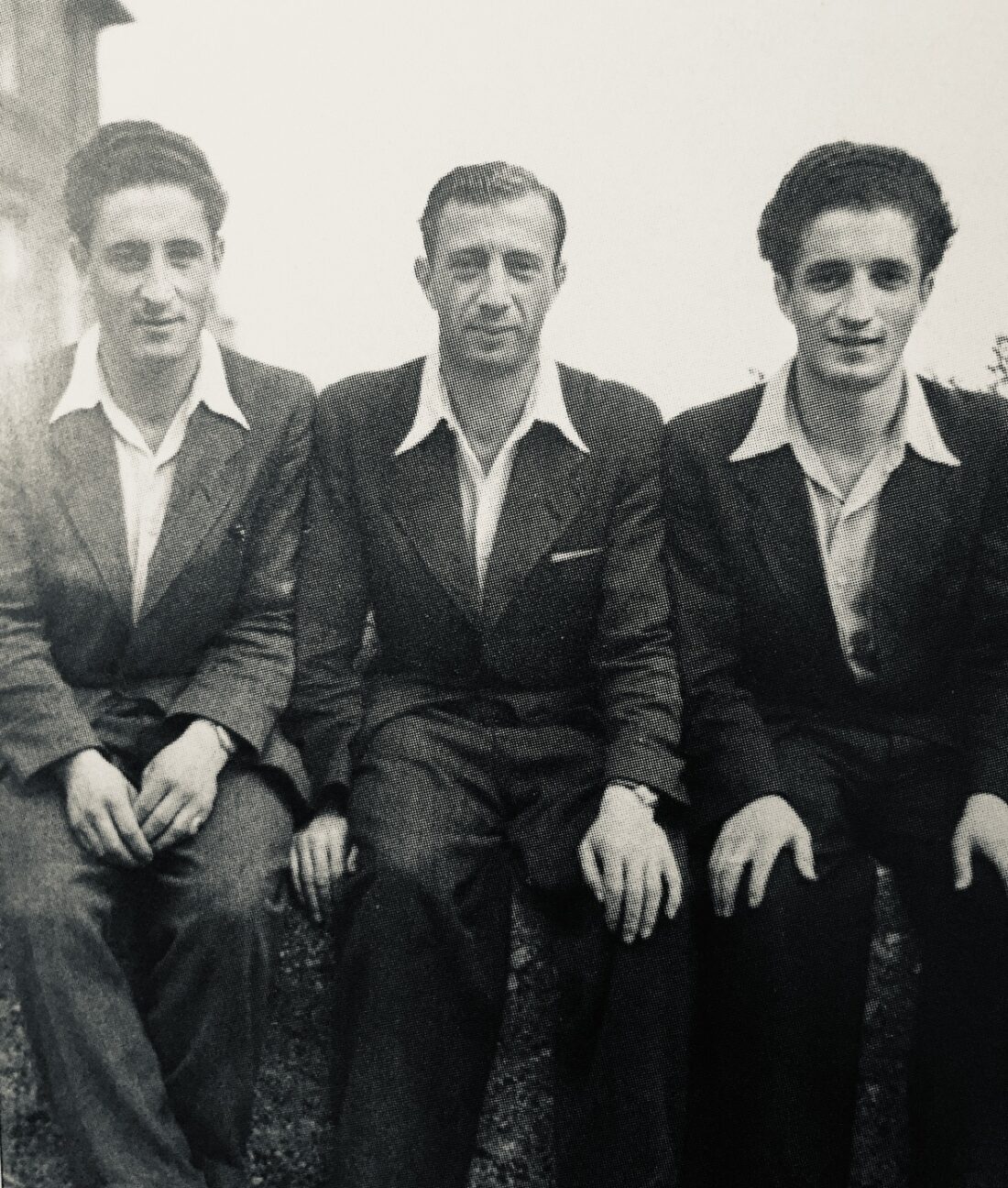A useful skill could be the difference between life and death for a Jewish person during the Holocaust. This was certainly true for the Polish brothers Khil (Harry), Mailekh and Moishe Lenga, who owe their survival to an ability to repair watches, a talent they inherited from their father.
The Lengas, hailing from a Chassidic family in the town of Kozhnitz, survived by the skin of their teeth, staying together at any cost. Scott Lenga, the son of Khil, skillfully chronicles their ordeal in The Watchmakers: A Story of Brotherhood, Survival, and Hope Amid the Holocaust (Kensington Publishing Corp.), a book that reminds us yet again of the unforeseen atrocities the Nazis inflicted on the Jews of Europe.
Khil, born in 1919 and named after U.S. President Harry Truman, died in 2000, but before he passed he spent 37 hours recording what he and his two brothers endured in a German ghetto and a succession of Nazi concentration camps. “This book is written in my dad’s first-person voice and style of communication,” writes Scott Lenga. “It is the voice of a father telling his extraordinary life story to his son.”
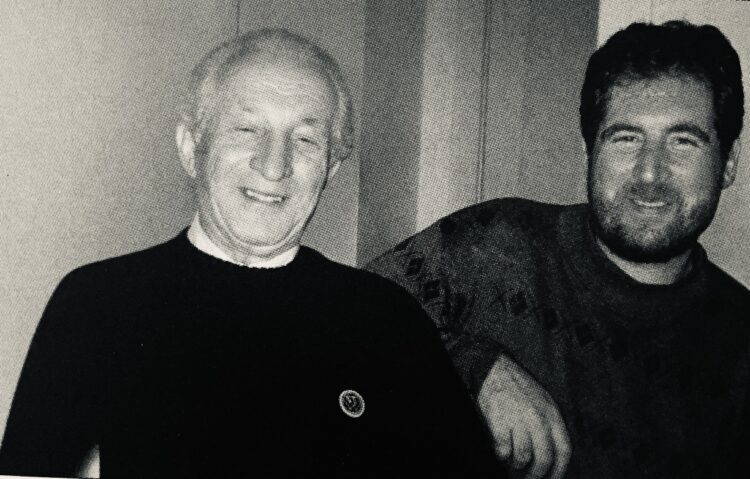
Kozhnitz, known as Kozienice, is 80 kilometers southeast of Warsaw. It had a population of 7,000, of whom more than half were Jews, in the second decade of the 20th century.
Khil’s father, Mikhoel, was a watchmaker from Warsaw who moved to Kozhnitz as a young man because he was a follower of the Kozhnitzer chassidic sect. Khil’s mother, Malke, was a native of Kozhnitz.
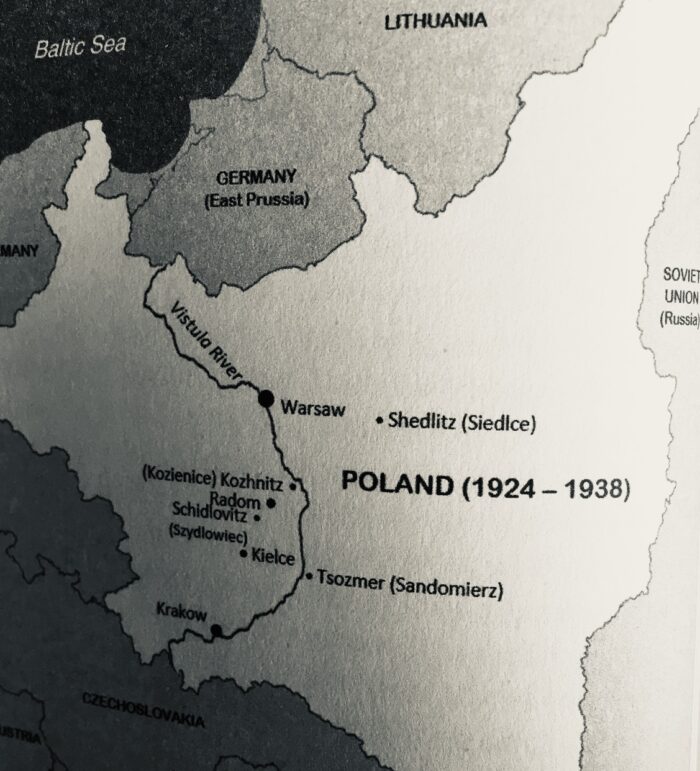
A Yiddish speaker, Khil did not start speaking Polish until the fifth or sixth grade because Jews and Christians lived separate lives. Khil learned Polish because he wanted to be treated like “a regular citizen.” He cut off his sidelocks, but continued to wear the long black coat favored by ultra-Orthodox Jews. “Of course, the Christian kids made fun of me.” Which prompted his Polish teacher to advise him to leave that coat at home.
“It was not easy at all to be a Jew in Poland,” he says. “You were reminded minute by minute that you didn’t belong. The Poles hated us. All the Jews felt it — even in good times. But I never felt inferior.”
Khil learned the watchmaking trade so he could go to Warsaw and make something of himself. He left in 1938. “My two older brothers (Izak and Mailekh) were already living there, so what could I lose?” He was lucky, finding a succession of jobs as a watchmaker.
Following Germany’s invasion of Poland, Khil and Izak stayed on in Warsaw, while Mailekh returned to Kozhnitz. Eventually, Izak fled to the eastern part of Poland, which was occupied by the Soviet Union.
Khil returned to Kozhnitz, only to witness Nazi cruelties against Jews. “My father dismissed the rumors that the Germans were planning to destroy us,” he says. In the meantime, the Lengas went about the business of repairing watches. “When Polish peasants came from the villages to get their watches fixed, my father told them not to bring money, but something to eat from their farms — flour, onions, eggs, potatoes, a chicken. Whatever they brought was good enough.”
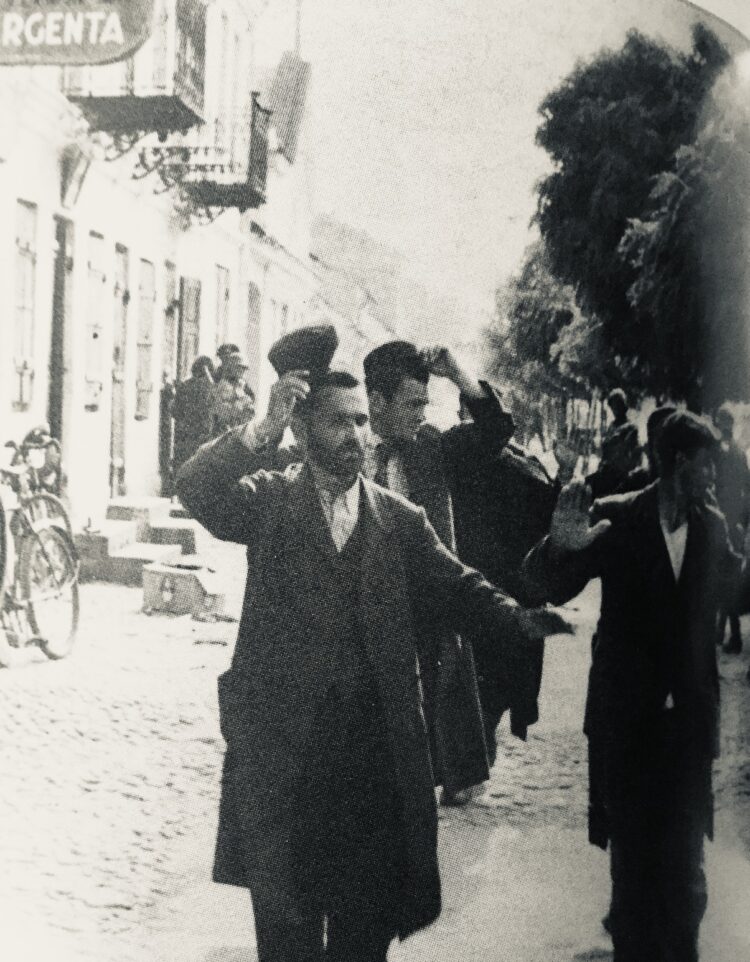
The Germans did not conscript Mikhoel for forced labor precisely because they required his skills as a watchmaker. “We were better off than most because my father had a trade that was valuable to the Germans.”
In September 1941, the Germans sealed the Jews in a ghetto. Jews who tried to escape were often shot. “We knew this was a calculated step in a larger plan, but we didn’t know what the Germans were planning or when.”
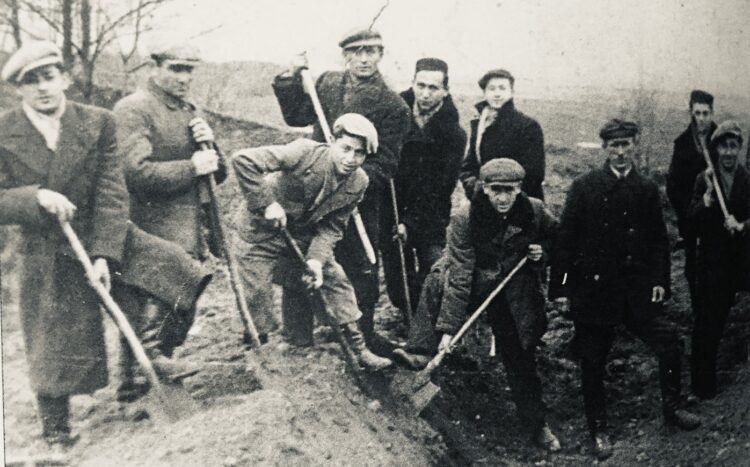
On September 26, the captain of the town’s Polish police informed the Lengas that the Germans intended to liquidate the ghetto and advised them to flee. Khil and his two brothers left, but his parents remained behind. They were murdered in Treblinka, along with thousands of Jews from Kozhnitz.
The Lenga brothers were consigned to a German labor camp in Wolanow where they were conscripted to build barracks and other buildings for the German Air Force. “The work was hard, but we managed somehow … We figured that sooner or later they would kill us, too.” They staved off death by repairing watches for Germans.
At the next slave labor camp, Starachowice, the brothers met their uncle, Yirmia, who was dressed in a police uniform. He initially protected them, but then turned against them. Here, too, the brothers used their skills as watchmakers to survive.
Ultimately, the Lengas were sent to Auschwitz-Birkenau, where they witnessed unimaginable horrors. “In Auschwitz, we were already more dead than alive. Nothing about our situation indicated that we had a chance of surviving. Our struggle and our resistance was simply to hope for a better tomorrow.”
During this period, they learned that the Wehrmacht was being defeated and that the Red Army was advancing on Auschwitz. “But we didn’t know details.”
In early 1945, they passed through two concentration camps, Mauthausen and Melk, both in Austria. Melk was tougher than Auschwitz. “We dug corridors in the hills for the Germans to build underground factories … The work was so hard and dangerous.”
At this point, they realized that the war was nearly over. “We saw Russian and American planes flying around at low altitudes … The Russians bombed the military installations around the camp.”
Their torment, however, had yet to end. The last camp to which they were sent, Ebensee, was the worst of the lot as far as they were concerned. They were assigned to break up solid rock in tunnels with jackhammers. “We saw that we would not be able to survive for long in this place … We were starving to death.”
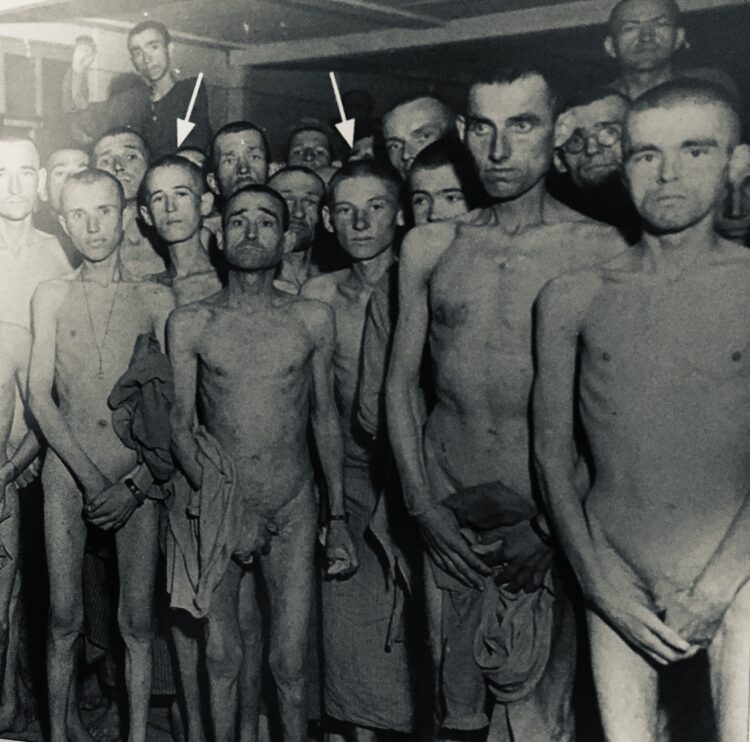
Conditions were so appalling that some Russian prisoners of war resorted to consuming corpses to fend off starvation.
They were liberated by the U.S. army, which plied emaciated inmates with so much food that some died. After the war, the brothers went to Rome, where they bought and sold whatever goods they could acquire.
Around 1947, all four brothers were reunited in a tearful reunion in a displaced persons camp in Stuttgart, Germany. “We got used to living in Germany … Most of the Jewish DPs were waiting to (immigrate) to Israel, the United States, Canada, and other places. Some blended themselves into the German life and economy. I could have done that, too. I made a lot of contacts in the jewelry business and the watchmaker community who wanted to create opportunities for me to stay there. But I never seriously considered it.”
Khil and Moishe immigrated to the United States in March 1949, leaving Mailekh behind in Paris and Izak in Israel. Khil renamed himself Harry, in honor of the U.S. president whose generous refugee policy had allowed him into the country. Moishe took the name Morris.
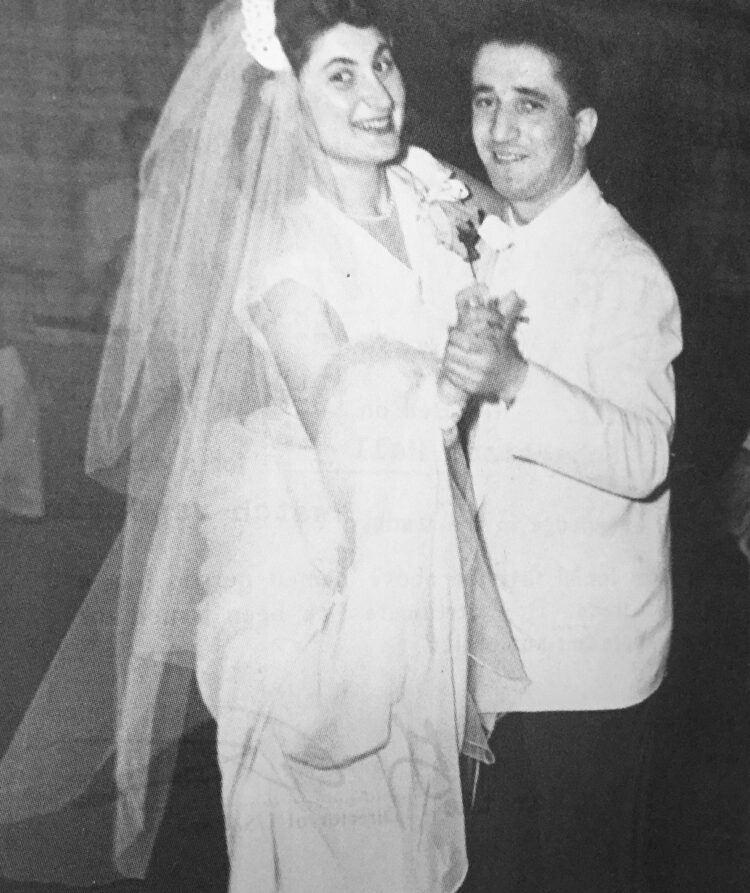
After going their separate ways, the brothers got married, had children and lived quiet and uneventful lives. Izak worked as a porter and a metal worker in Haifa. Mailekh opened a shoe factory in Paris. Khil and Morris were watchmakers and jewelry store owners in St. Louis.
They had come a long way from Kozhnitz.
